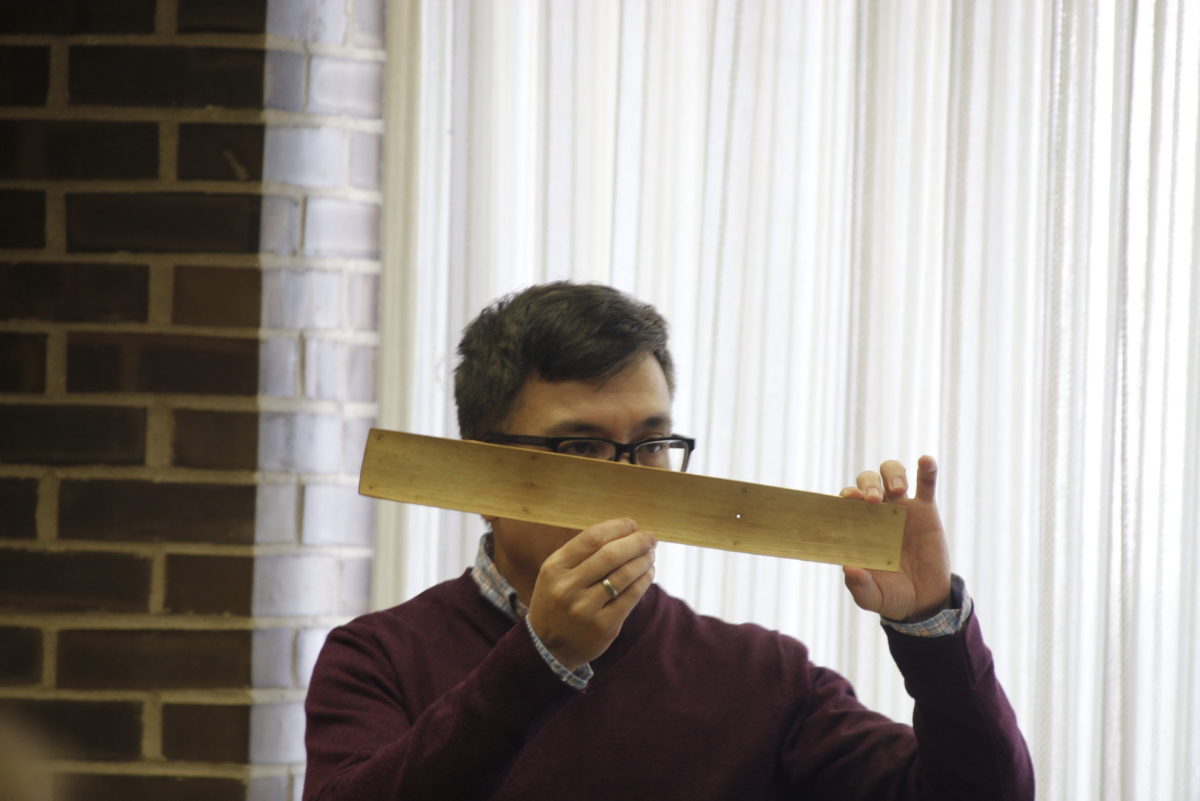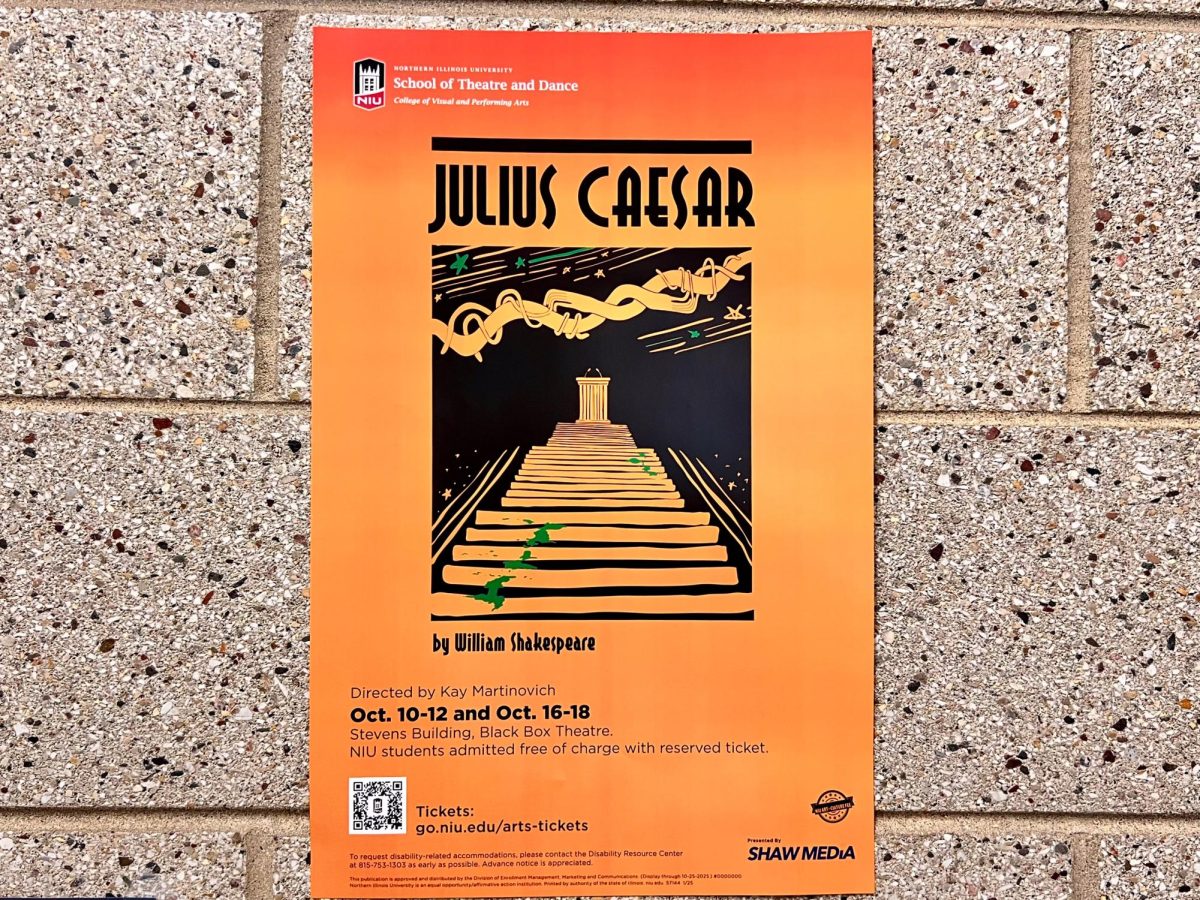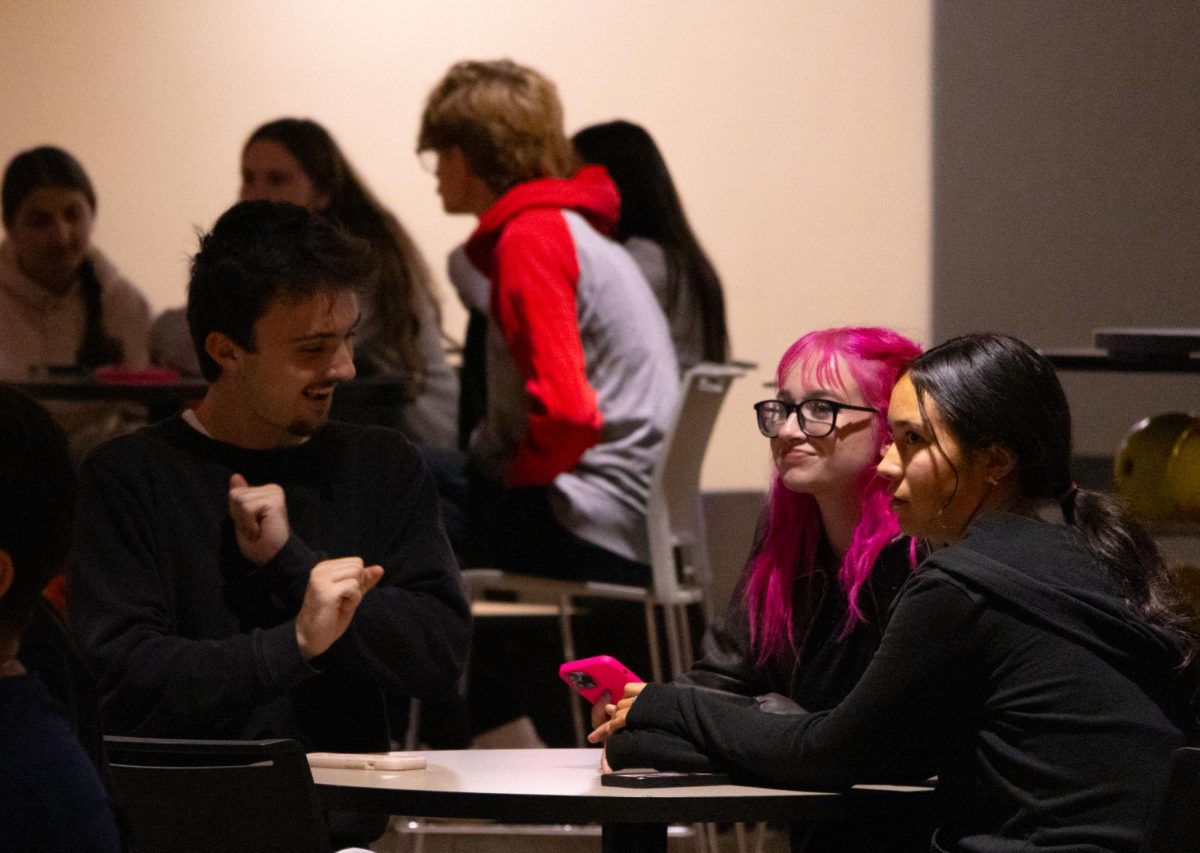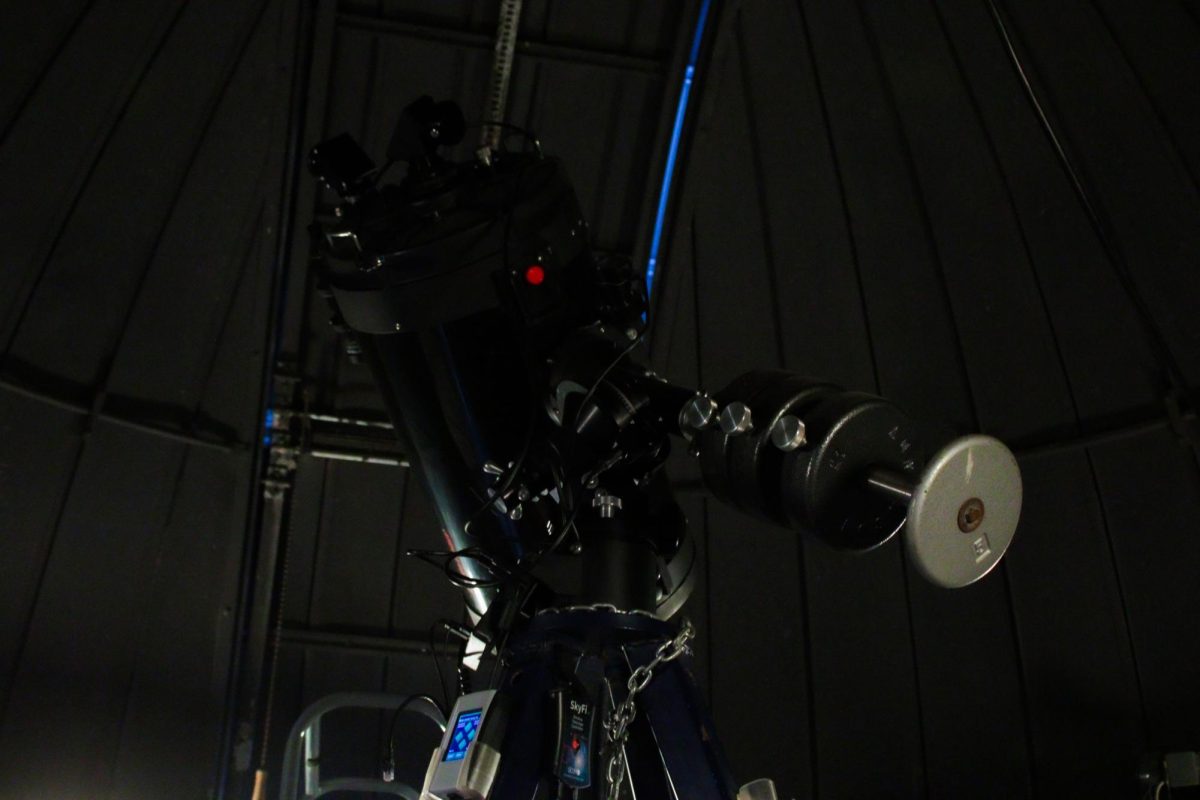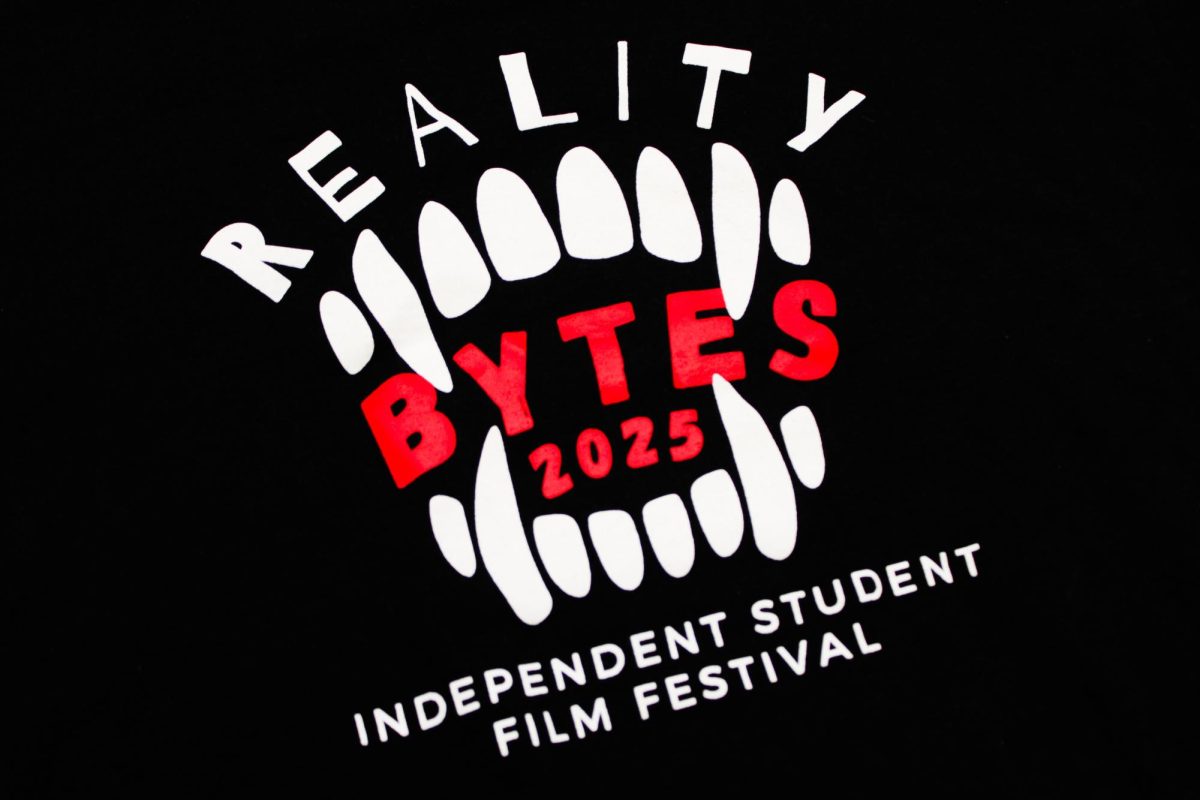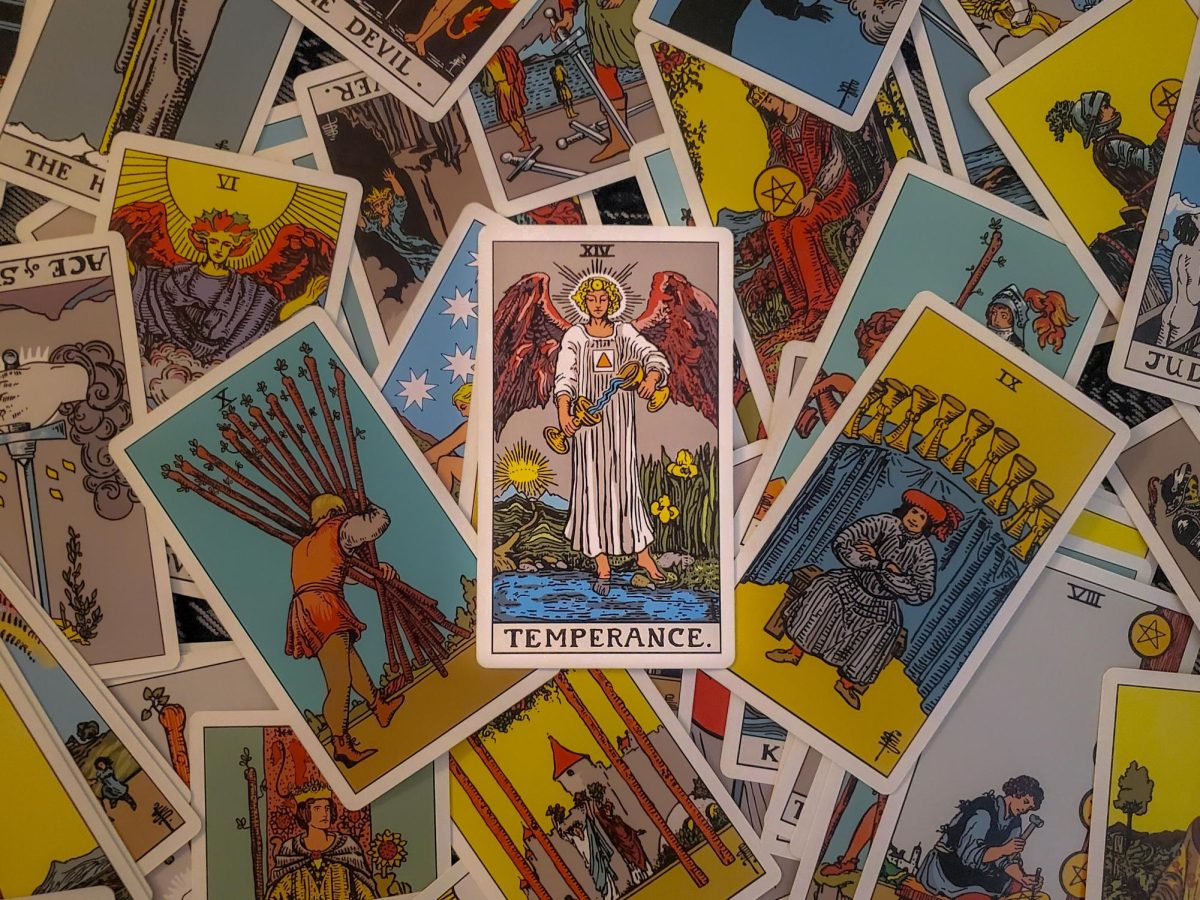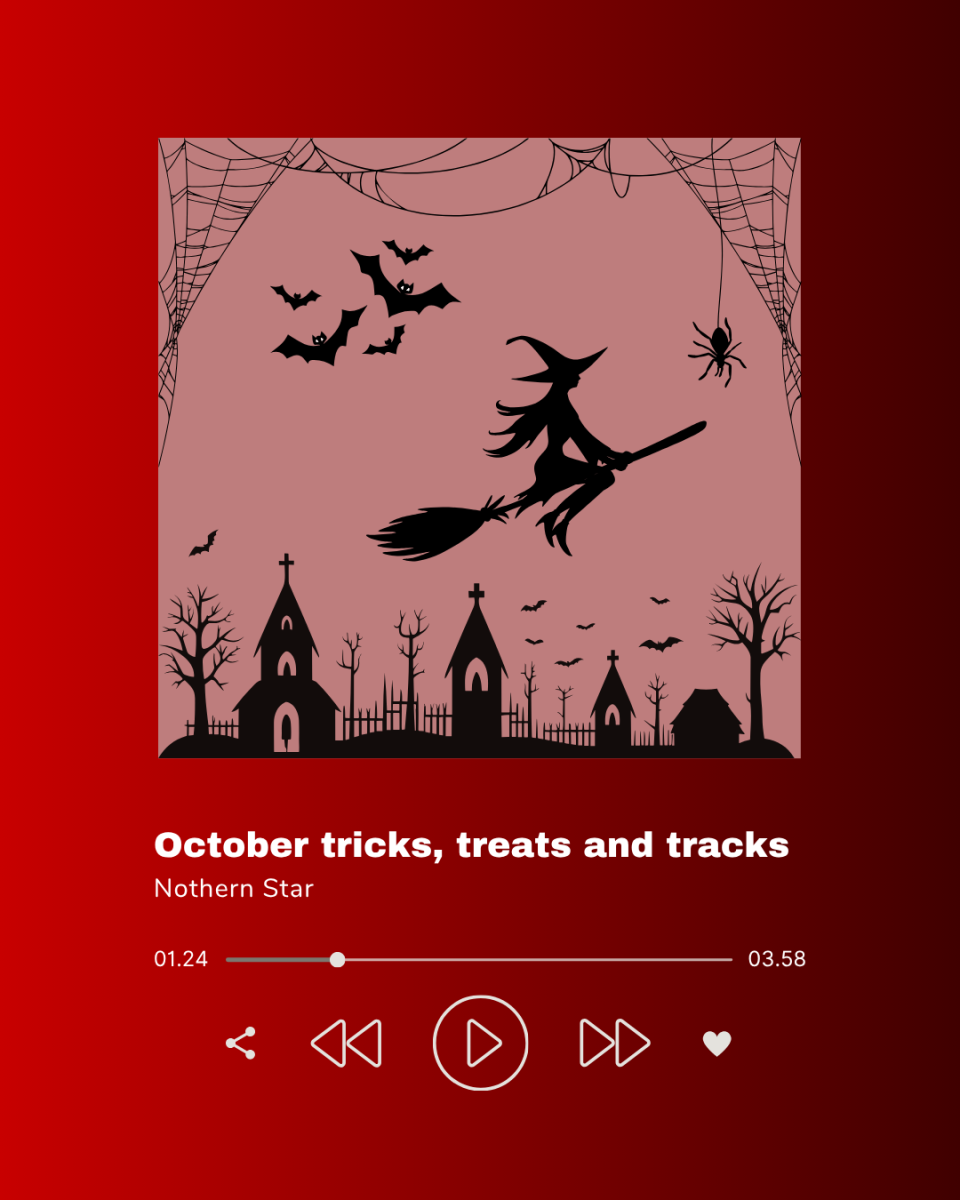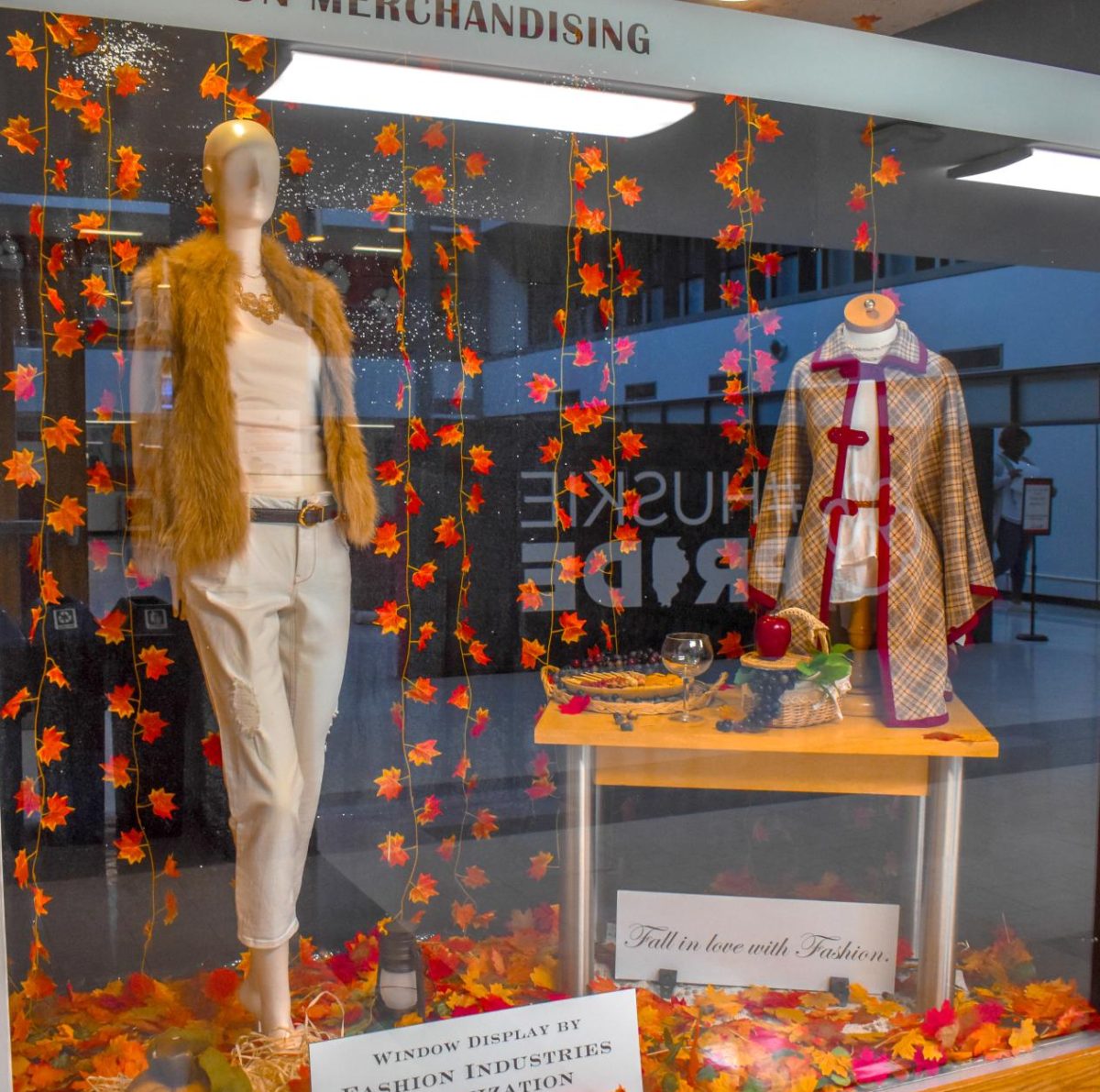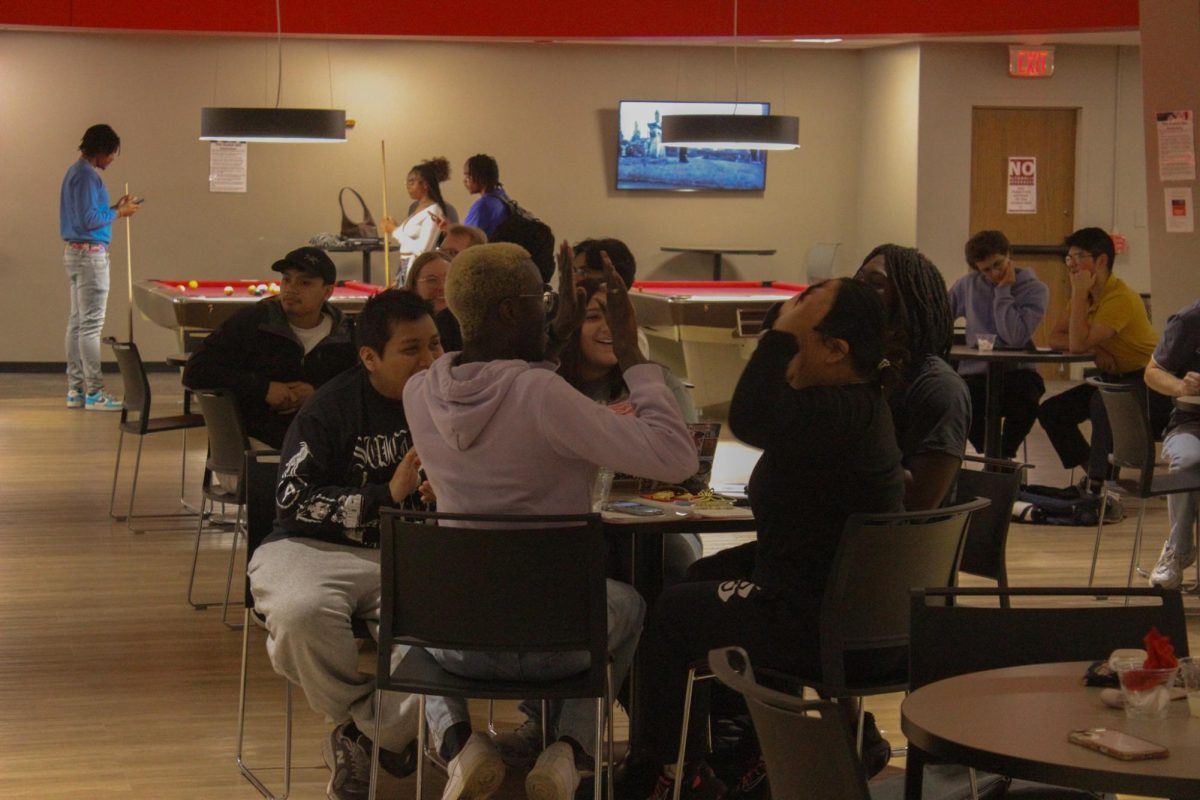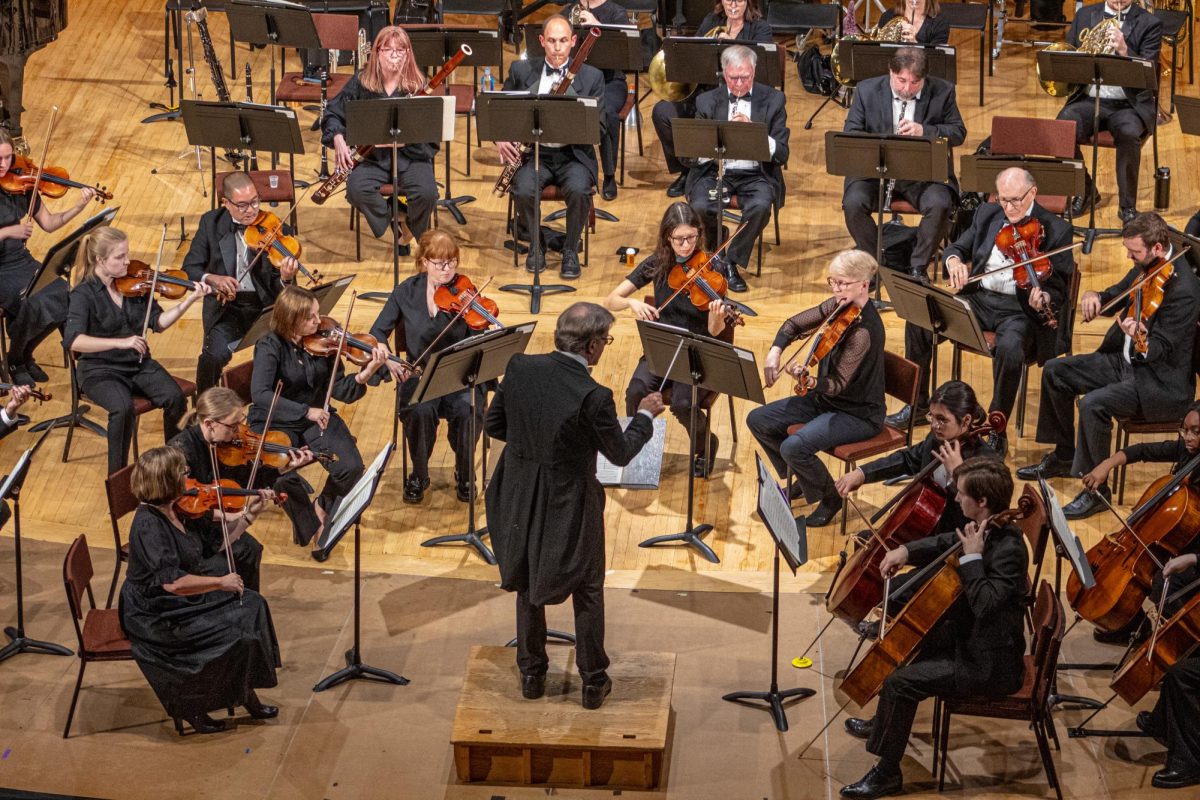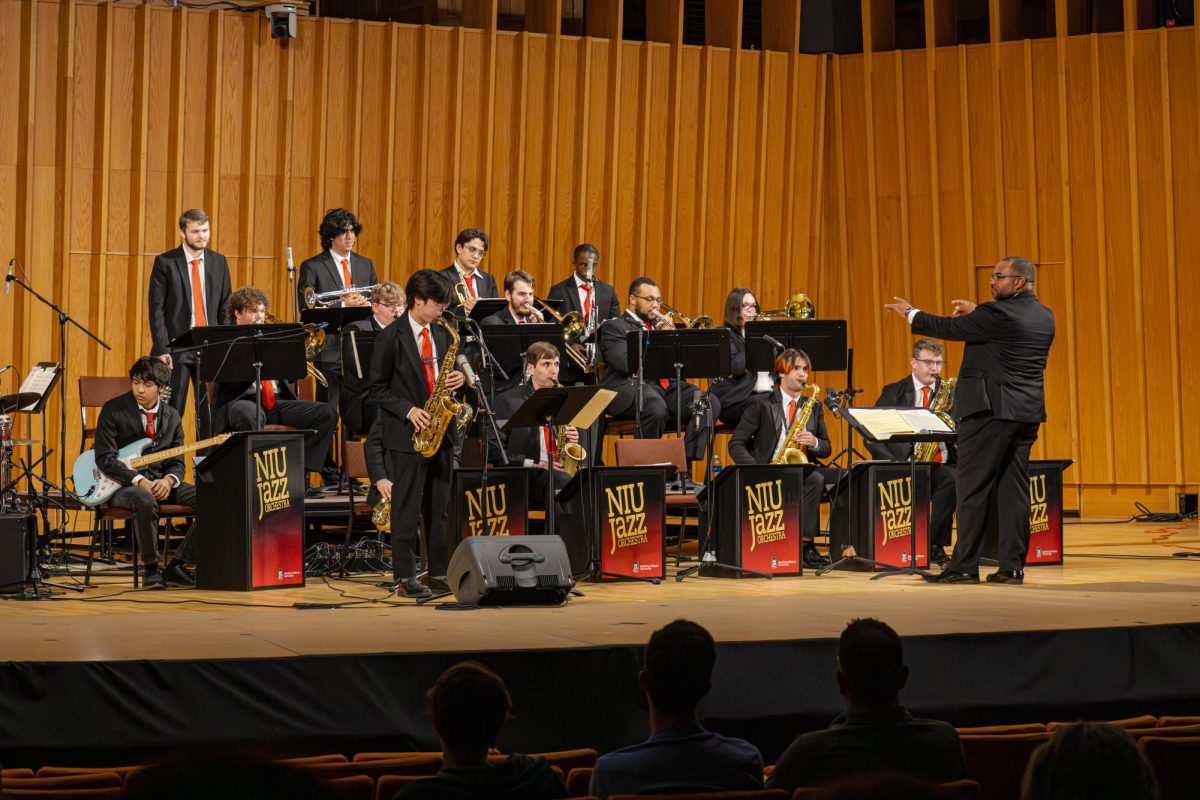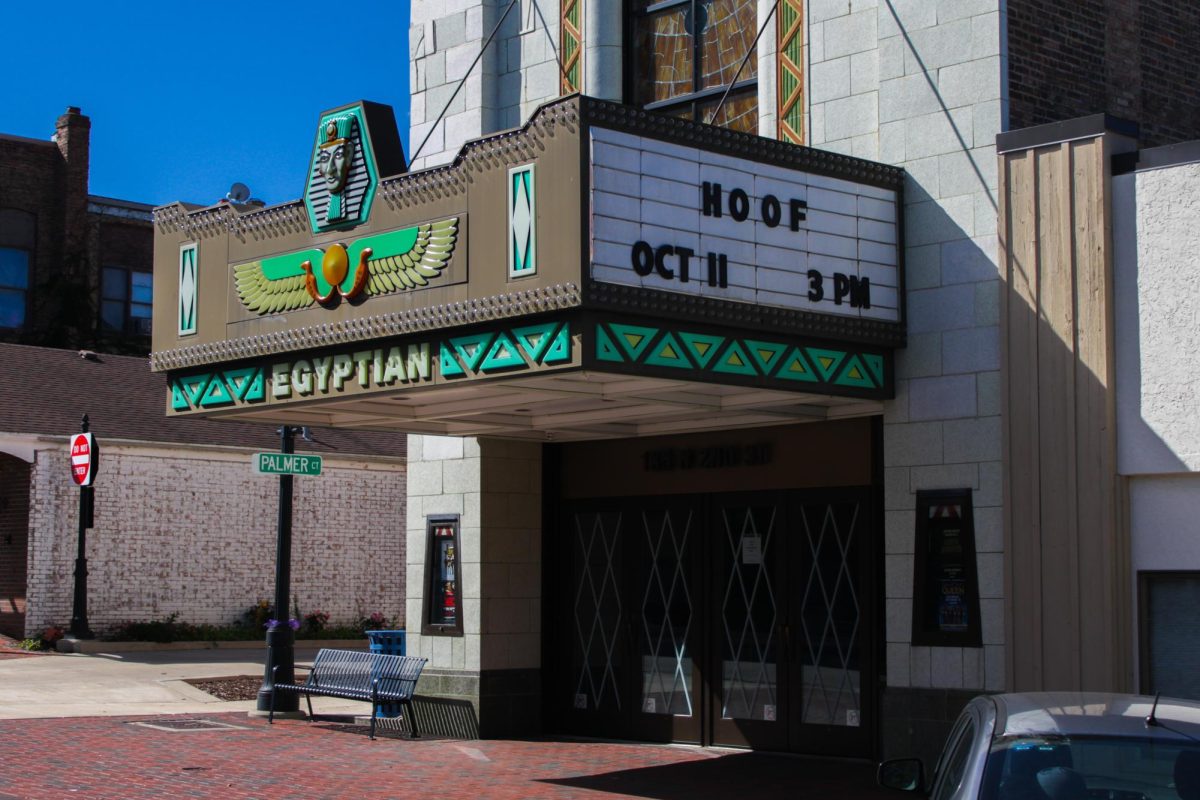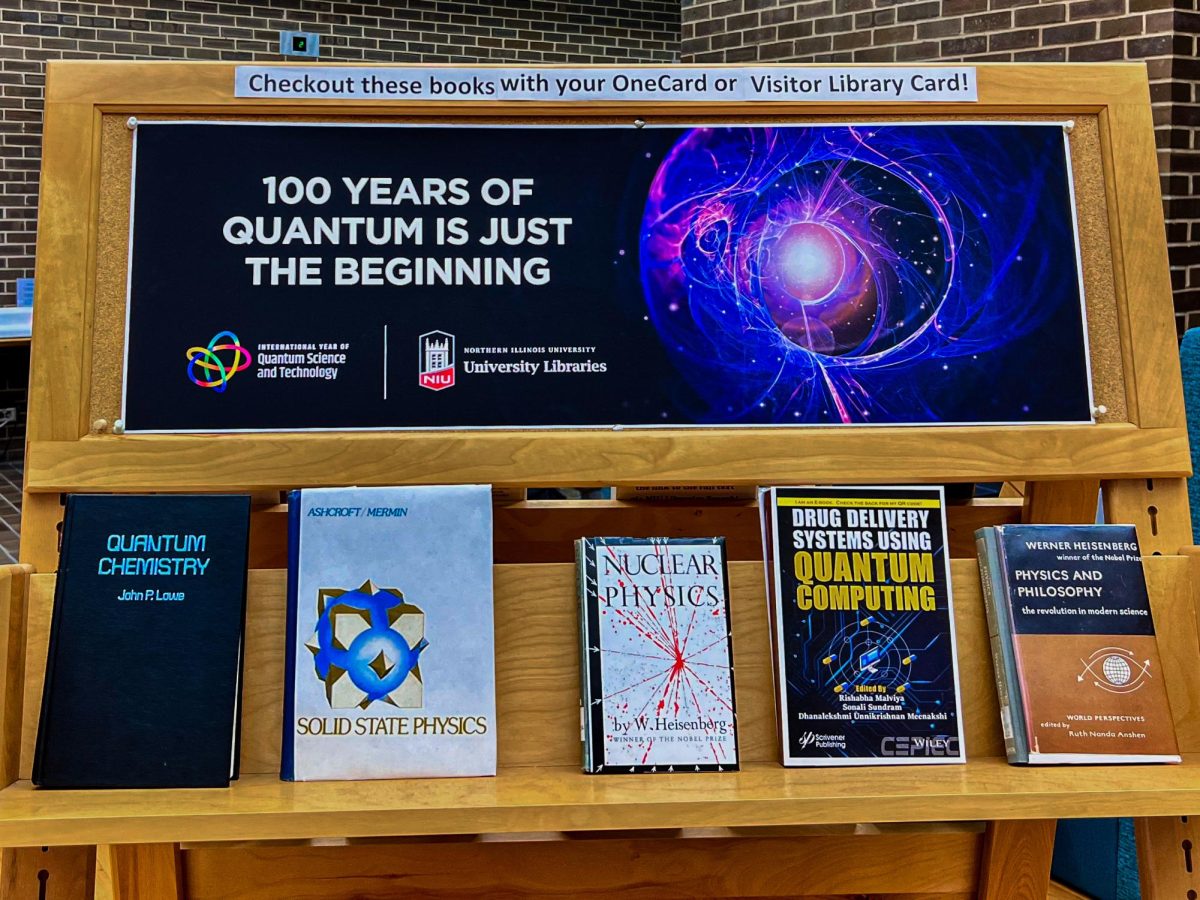Books and literature are fundamental to the exploration of human communication and language. By looking at cross-cultural examples of book-making and publishing processes, we gain a unique understanding of each other.
At noon on Thursday, faculty and students were treated to presentations by two faculty members on historical book manufacturing in the Rare Books and Special Collections Reading Room of the Founders Memorial Library.
The first lecture focused on the making of palm-leaf manuscripts and was given by Hao Phan, University Libraries’ Southeast Asia curator and director of the Southeast Asia Digital Library. The second talk focused on attribution and authorship in the publishing of British literature and was given by Lara Crowley, an NIU English professor.
These lectures are part of an ongoing set of programs and presentations focused on looking at the intricacies, histories and publishing of books called “The History of the Book.” The series uses a multidisciplinary approach and features two faculty members presenting each event.
PALM-LEAF MANUSCRIPTS
Audience members were given the chance to see and feel palm-leaf manuscripts, books made from the dried leaves of palm trees.
The pages felt like a cross between wooden No. 2 pencils and dried corn husk.
The best leaves to make the pages from are young, strong trees with lots of green pigment and vascularity, according to Phan.
While the exact methods of drying the leaves can vary depending upon the country, the goal is to get the leaves to the same rectangular flat shape to prepare them for printing.
Due to the high cost of production and the creation of these books, the making of them was typically done by Buddhist monks.
“The cost of making the manuscripts would be the same as building a monument in Burma,” Phan said.
While typically palm-leaf manuscripts can last from a few decades to a few centuries, if the manuscripts are well preserved, they can last much longer.
“The oldest manuscript that exists nowadays is one that was found in Nepal. It was written in the ninth century and is currently kept in the Cambridge University Libraries,” Phan said.
Phan also mentioned the importance of preservation and remembering culture.
In places like Burma, where the king built huge libraries and gave more funding, preservation of these materials was easier.
Another important issue was the idea of authorship, which wasn’t considered very relevant in the organization and creation of these texts.
“The subject is very general. Usually a Buddhist text or teaching, they don’t usually come with authors,” Phan said.
While direct access to these older manuscripts is usually handled by the Special Collections and Archives department, Phan helped to create the archival website the Southeast Asia Digital Library to aid in the preservation of these objects and to share the culture of South and Southeast Asia.
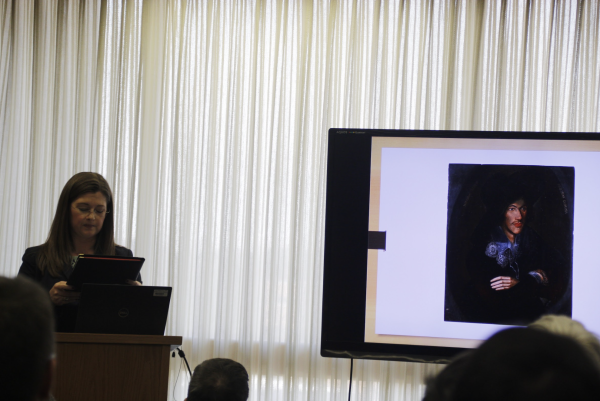
BRITISH LITERATURE: AUTHORSHIP AND ATTRIBUTION
Continuing on the idea of authorship, Crowley also discussed issues of properly identifying authors accurately in early British literature publishing.
Crowley is currently working on a research project, so her main case study focused on author John Donne and how numerous poems may have been misattributed to him.
“Without authorial involvement, printing shops basing their text on whichever manuscripts they happen to acquire,” Crowley said. “Making many printed collections seem more like, to borrow a phrase from Ernie Sullivan, ‘second-hand manuscripts’.”
Crowley went on to explain there are doubts about researchers’ reliance on attributions and that some authors may not have their work properly credited.
Furthermore, Crowley also discussed the lack of knowledge in the perspectives of the original audience of these works.
“How much did early readers and writers actually care about attribution accuracy?” Crowley said.
Crowley also discussed the limitations and use of technology when analyzing text. She stressed that overreliance on technology without being aware of what manuscripts and texts are being used can lead to more mistakes.
Crowley also mentioned why she chose Donne specifically to focus her research on.
“I got really excited when I was first reading his poetry, the romance of the story of him burning up his career for love,” Crowley said.
Crowley also mentioned wanting to finish her research in England in the summer.
FINAL THOUGHTS
Both lectures brought up different ideas of authorship and how much importance we give to it. Over time and across different cultures attitudes may shift and change.
The next two lectures will take place at noon on March 7 and will also feature manuscripts. The presenters will be Chris Nissen, an emeritus professor from the World Languages and Cultures department, and Brian Sandberg, a history professor.


